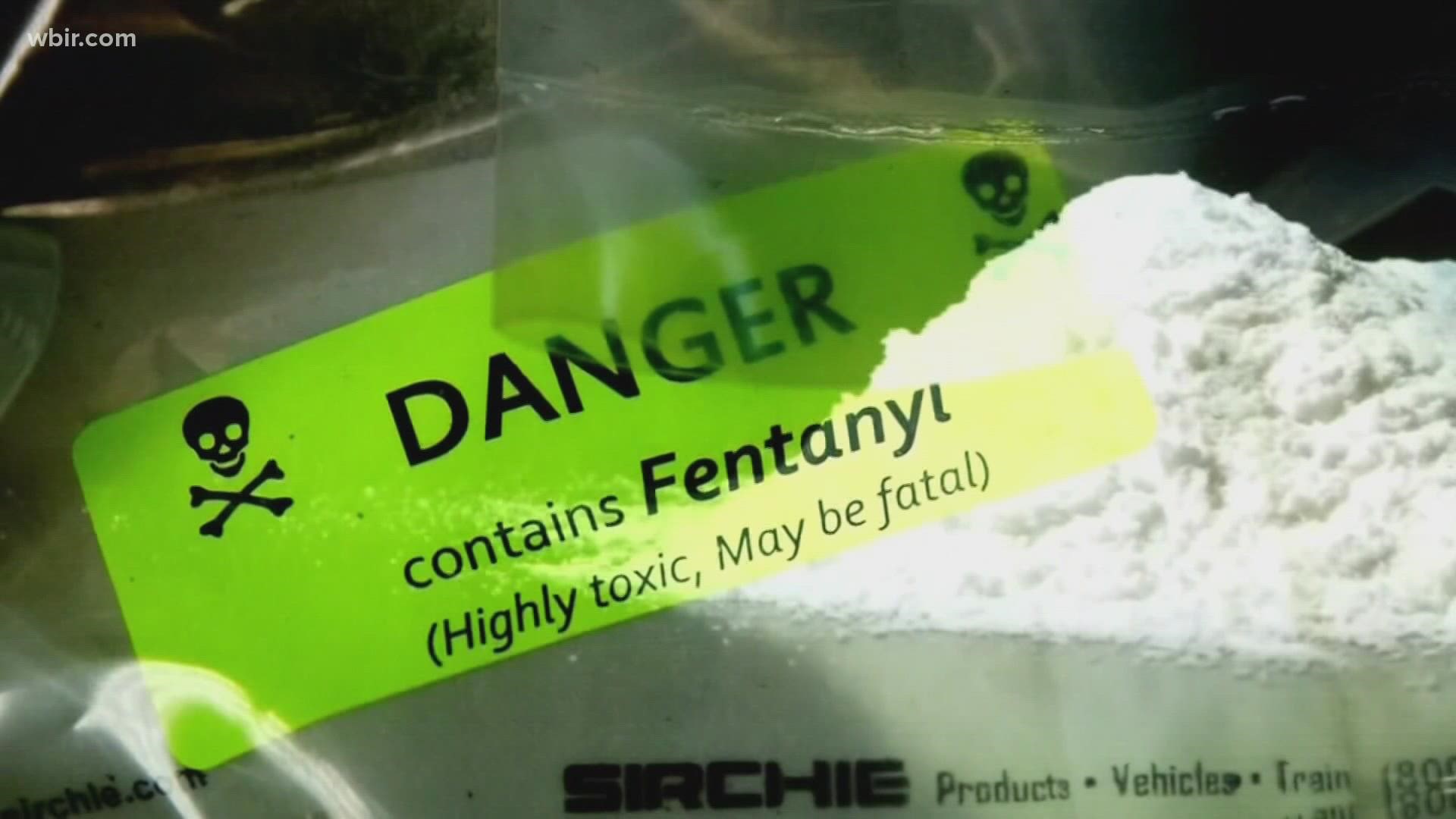NASHVILLE, Tenn. — Tuesday marked the first-evr National Fentanyl Awareness Day, which is meant to remember the people who passed away due to fentanyl poisoning while also raising awareness about resources people can use to overcome substance use disorders.
The Tennessee Department of Mental Health and Substance Abuse Services honored it, sharing information about fentanyl. They said fentanyl was used for around 50 years in medical procedures, under the direction of doctors. However, they said illegal fentanyl produced in labs has been smuggled into the U.S. and has been used alongside many existing opioids, further fueling an overdose epidemic.
Deaths from overdoses doubled from 2019 to 2020 across the U.S., according to the department. Researchers also said they expected 2021 numbers to show another increase in overdose deaths.
The Tennessee Bureau of Investigation also honored its first National Fentanyl Awareness Day. They said fentanyl is being found mixed into many other kinds of illegal drugs like methamphetamine, heroin and cocaine.
"Unfortunately, the danger associated with fentanyl is death," said David Rausch, the director of the TBI. "What happens is, one, it's being sent in in its pure form and people are getting it in its pure form, and taking it, and unfortunately are overdosing. It also is being mixed with almost everything now."
He also said fentanyl is also different compared to other drugs due to its origin. Most other illegal drugs are agriculturally produced, such as how cocaine is derived from the coca plant. He said fentanyl is made in a lab, so it's unlike other drugs that the bureau has seen.
"We've always had this underlying challenge with addiction and desire," Rausch said. "And I think what's happened is the marketing from the cartels, they understand where the greatest demand is and they know the demand is here. Not only do they bring it to the demand, but they make more demand."
There are many resources online to help people take the first step towards recovering from substance abuse, such as through the state's TN Together program.
WBIR also has a list of resources people can use here.

